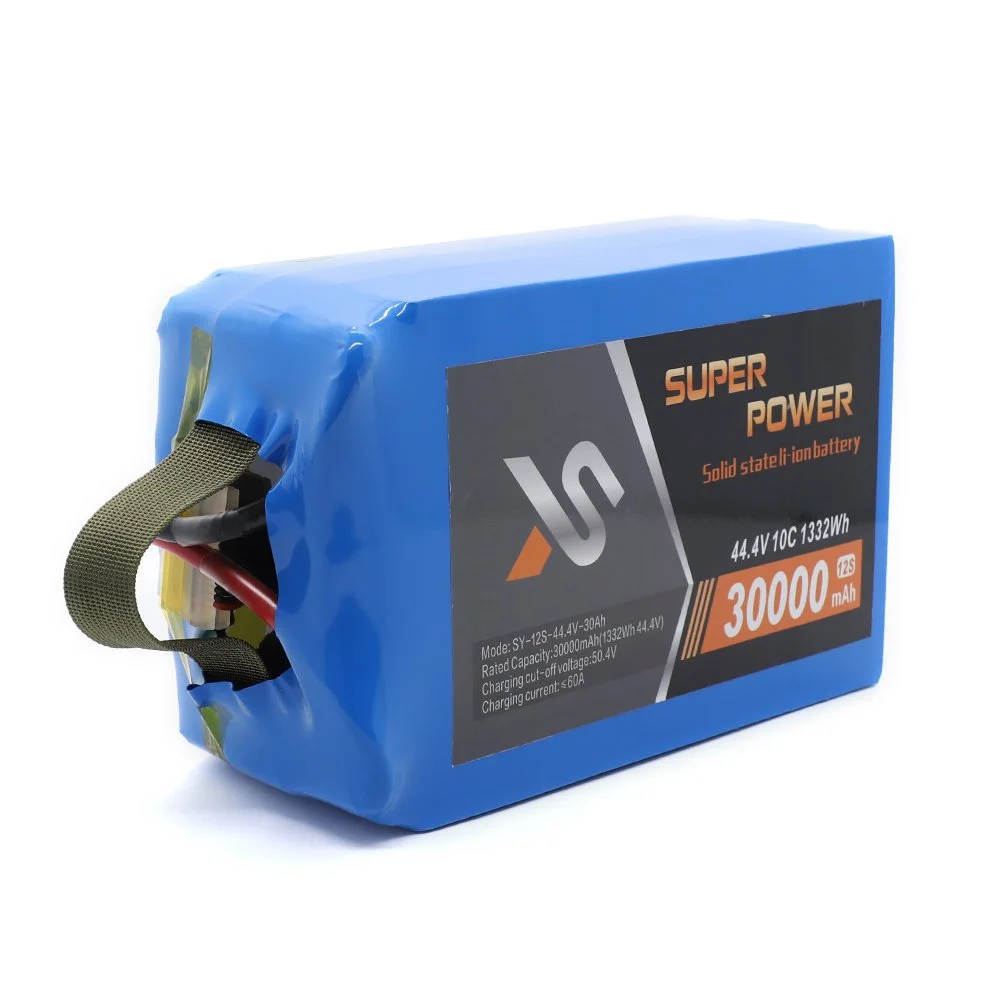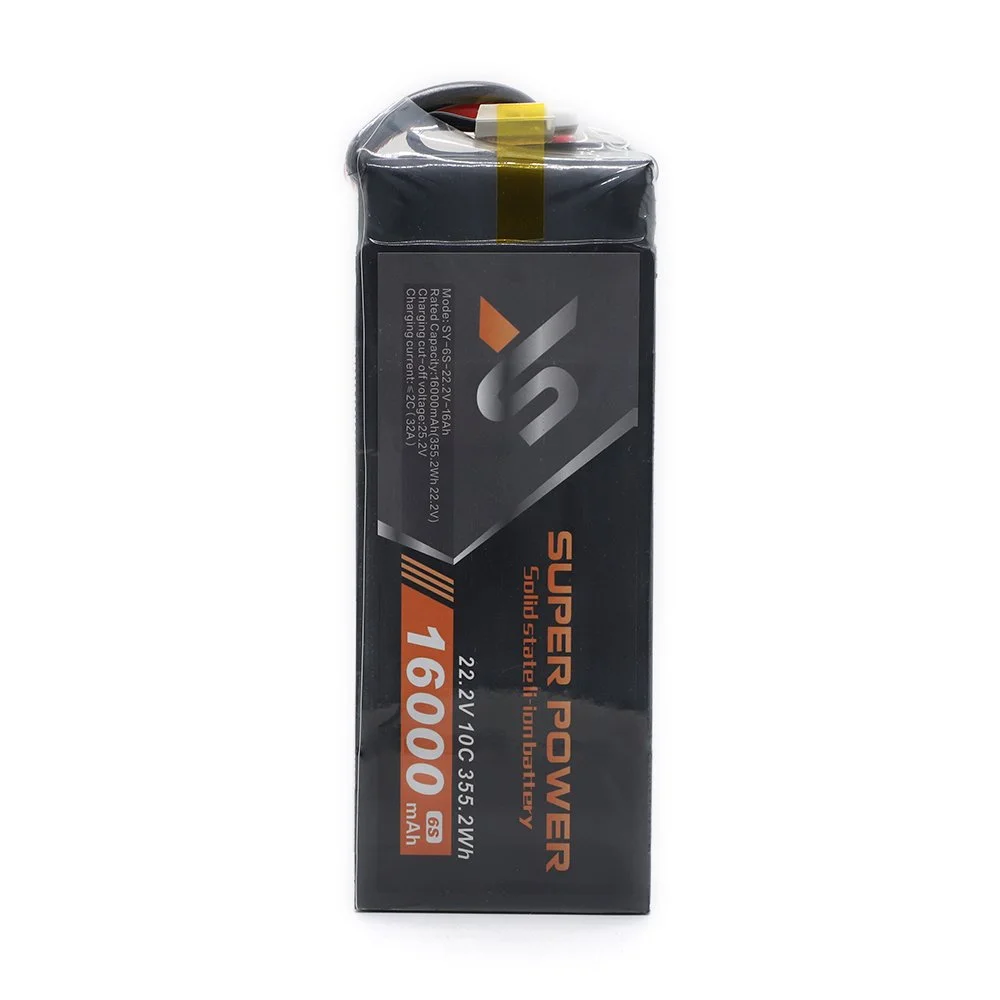Lithium-ion batteries power laptops and cellphones, electric cars, drones, and most other applications have high energy density, long cycle life, stability, and it is possible to use them for the majority of applications.
Shengya Electronics’ Product variety with the high energy density: 270wh/kg, 320wh/kg, 330wh/kg, 340wh/kg, the device is used for much longer time intervals without charging. They, just like all others, are for a limited amount of use time and will run out and should be replaced by a new after a certain duration of time.
Main Symptoms of Battery Deterioration
Decreased Battery Life and Performance
One of the most apparent signs that you need to replace your lithium-ion battery is a visible reduction in its life. A battery will also last for hours after it’s charged for the first time, but gradually that reduces considerably.
SY-12S-44.4V-30Ah product is nominal capacity ≥30Ah, with long hours of use before recharge is needed. If your device battery life is not lasting as long as before, then you’re ready to purchase one.
Charging Problems
Charging problems are also warning signs for battery issues. If hours of charging your phone are not sufficient to charge the phone or the phone will not fully charge after hours of charging, you have a red flag.
And if the phone is discharging very quickly once unplugged or will not charge at all, then battery performance is in question.
Overheating and Physical Damage
Not only is overheating uncomfortable, it’s unsafe. A lithium-ion battery that’s consistently warm when being used or charged is likely on its way out. Overheating will occasionally actually physically harm the battery by swelling or leaking.
The SY-6S-22.2V-16Ah has excellent safety features that will keep the battery from catching on fire or exploding even when punctured—a very nice safety feature to have when one has the tendency to overheat.
Random Shutdowns and False Readings
Lithium-ion battery-powered devices will start to shut down at random once the battery has expired. This could be despite the device indicating that there is still charge remaining.
False readings such as these are frustrating and irritating, leading one to think that the internal components of the battery no longer function as they ought to.
Age and Manufacturer Warnings
All lithium-ion batteries possess an approximate cycle life in charge cycles—typically 300 to 500 cycles for normal consumer application devices. Some products, such as Taixing Shengya Electronic Technology Co., Ltd, possess additional cycle life, some providing up to 1000 cycles at 100% DOD (Depth of Discharge).
If your battery is approaching or has reached its approximate cycle number, replace the battery.
Safety Issues
Unusual Smells or Smoke
Every foreign or off smell from your phone or even smoke itself will elicit an instant reaction. They are sure signs of ill chemical reactions within the battery—from dangerous fires to others.
Immediate Actions
If you ever do smell smoke or odor coming from your lithium-ion battery, remove it from power and remove any combustible material it may be in. Allow it to cool in a ventilated space if needed before handling.
In pre-planning for level performance and safety with your electronics, these signs will help pre-plan Lithium-Ion Battery replacement.
What to Do If You Notice These Signs
Avoid Using the Battery
In case you observe any of the symptoms mentioned above, you are required to stop using the battery. Continued use of a dead battery will only lead to additional damage, not just to the battery but also to the device being charged by the battery.
It also becomes an even greater source of safety hazards such as overheating or even fire. To prevent this from happening, stop usage and take out the battery from any power source.
Check Warranty and Replace
Once you have finished using the battery, check whether the battery is still within its warranty period. The manufacturers offer a guarantee for defects or premature failure. If your battery is within its warranty, get it replaced by calling the store or manufacturer.
Recycle Properly
Dispose of lithium-ion batteries properly to ensure environmental safety. Lithium-ion batteries have materials that, if not disposed of properly, will be toxic. Electronic waste recycling centers are generally available in most places, and they accept batteries. Always adopt local recycling or proper disposal practices of lithium-ion batteries.
Preventive Measures
Avoid Extreme Temperatures
Lithium-ion batteries are temperature-sensitive. Extremely low or very high temperatures greatly affect their performance and lifespan. Maintain your battery within the recommended temperature range by the manufacturer to store it for the longest period.
Use Proper Chargers and Store Correctly
Charging batteries with non-model-specific chargers will lead to overcharging or undercharging, both of which are wastes of battery life. Use only manufacturer-approved chargers and keep your batteries cool and dry in a storage space when not being used.
Regular Software Updates
For devices with software-controlled charging systems, update the software on a regular basis. Companies’ updates involve revisions to the charging algorithm, which optimize batteries to be more efficient and have a longer lifespan.
Importance of Active Maintenance
Active preventive maintenance like avoiding extreme temperatures, good quality chargers, proper storage, and regular software updates can prolong your lithium-ion battery life in an excellent way. With the right choice and with the right choice at the right time, you can give your lithium-ion battery devices their full safety and performance.
It is important to detect signs of degradation such as shortened lifespan, charging issues, overheating, random shut downs, and manufacturer warnings in a timely fashion to facilitate replacement decision-making. Safety concerns such as abnormal odor or smoke must be dealt with immediately.
To guarantee secure and steady high energy density long cycle, utilize items from organizations like Taixing Shengya Electronic Technology Co., Ltd., which is a surety in solid-state lithium-ion soft pack batteries, renowned for service and diversified items to suit the worldwide market.












